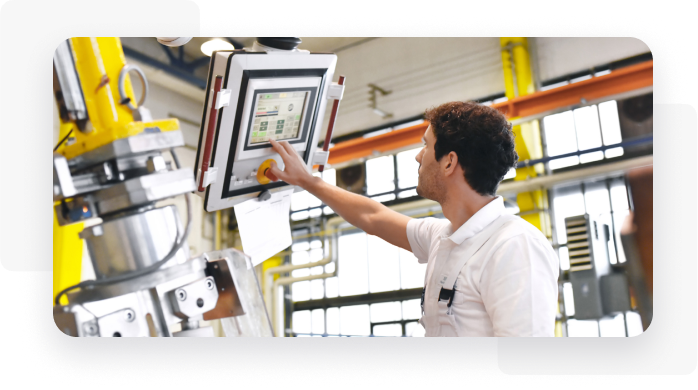Manufacturing

Gone are the days when the industrial manufacturing value proposition was relatively simple: an industrial manufacturer makes a product and ships it. Today, the industrial manufacturer's job doesn't end with shipping. Driven by increasingly demanding customers and the use of emerging technologies such as the Internet of Things (IoT), machine learning and artificial intelligence, industrial manufacturers must be able to develop new capabilities to adapt their services depending on the circumstances.
They need to be responsive in real time, always on, and adaptable. In short, simply making great products is no longer enough. Industrial manufacturers need to be able to collaborate with their customers from invention to design, service, and beyond.


To survive in the new economy, manufacturers must take dramatic business transformation steps driven by adapting to technical, cultural, and organizational changes.
Strategic Priorities
We have identified FIVE strategic priorities necessary for industrial manufacturing companies to transform their businesses.
Be Customer Centric
The relationship between industrial manufacturing companies and customers will be maintained if industrial manufacturers focus on long-term value based on a comprehensive understanding of their customers, starting with a holistic view of the customer's business processes and ending with knowledge of how the customer uses the product in their daily operations.
A truly customer-centric company will interact smoothly with its customers continuously through various channels.
Serve The Segment Of One
Industrial manufacturing companies will be able to deliver products, services and solutions that are fully tailored to customer needs based on advanced platforms, configurations and mass customization strategies.
Embrace Digital
Smart Products and Solution Industrial manufacturing products will shift from being largely mechanical to having increasingly digital functionality, allowing for more flexible product configurations throughout the product lifecycle. As a result, the value contribution of software will grow significantly.
Implement the Digital Supply Chain and Smart Factory
The supply chain and manufacturing network in industrial manufacturing companies will be fully modular and flexible to enable seamless execution of various manufacturing strategies.
Deploy Service-Based Business Model
Most of the revenue of industrial manufacturing companies will come from services that are based and built on smart products. Companies will offer products as a service based on the value they provide to the end customer.

How to achieve these strategic priorities?
How do you achieve these strategic priorities? Start by reimagining your business with your customers. Then, build a path for intelligent optimization and automation to simplify your business and invest in more digital transformation programs and discover new business models and revenue streams.
Most organizations may understand what's happening in their business because they have systems that capture operational data (O-data). However, to influence what happens next, companies need data about the interactions people have with their products and businesses. Experience data (X-data) captures beliefs, emotions, opinions, and perceptions - the 'why' of something.
To win in today's competitive business environment, intelligent companies connect experience with operations. They use X-data and O-data to guide their business decisions.
SAP Business One Intelligent Framework has the strategy, expertise, and solutions to realize this vision, enabling intelligent companies to turn insights into action.
Contact Us for a Free Consultation
Have questions or need more information? Our team is here to help. Schedule a free consultation today!


© 2026 Achtdata. All Rights Reserved.


